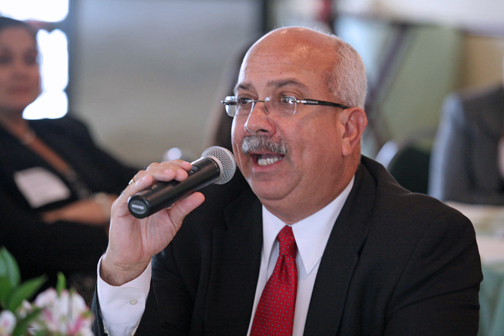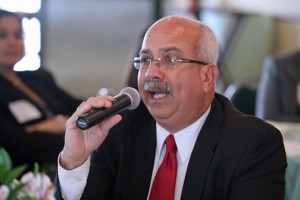PRHTA sues to keep politics out of tourism marketing

The Puerto Rico Hotel and Tourism Association filed a lawsuit at the San Juan Superior Court Wednesday to protect the destination’s marketing campaign from being affected by “undue intervention” from the State Elections Commission, trade organization Chairman Miguel Vega confirmed.
The document responds to a “Writ for Review” filed on Feb. 1 at the same court by the New Progressive Party electoral commissioner, Jorge Dávila, requesting a review of the resolution that approved the Puerto Rico Tourism Company “Puerto Rico the All-Star Island” campaign.
“Once again we find ourselves needing to defend the tourism industry. For years, we have indicated the need to separate the marketing and promotional efforts of the island as a tourism destination from party politics,” said Vega.
“Today we can see how the matter we address validates our position and reaffirms the need to establish a private and independent professional marketing entity for the destination,” Vega added.
Under Puerto Rico’s law, during an elections year and up to the day following the elections, the Commonwealth’s government, legislative assembly and the judicial branch are banned from spending on advertising, or distributing propaganda for their plans. However, the Tourism Co.’s promotional efforts are precluded from that law, as long as administrative or corporate achievements are not included or any agency official is featured. Promotional materials must go through the State Elections Commission for review and approval.
Gov. Alejandro García-Padilla adopted the “Puerto Rico All-Star Island” campaign in 2013 for its institutional efforts.
“We cannot allow the industry to be held captive to interpretations that seek to determine if the promotional and marketing efforts contain political elements. Today we’re asking the Court to determine that the State Elections Commission is not empowered to evaluate if the marketing and promotional campaigns of Puerto Rico as a destination, internally or externally, comply with the provisions on broadcast controls and public expenses contained in the Electoral Law,” Vega said.
The court accepted the PRHTA’s motion and asked for additional documents to decide about the State Elections Commission’s jurisdiction over the content of tourism-related campaigns.
“It is imperative that this controvery be resolved as soon as possible. We’re in the middle of the high season and cannot allow our presence in the markets to fade because of political party discussions,” Vega said. “We cannot allow that one of the few industries that creates opportunities even during the current crisis be held captive to these discussions.”














